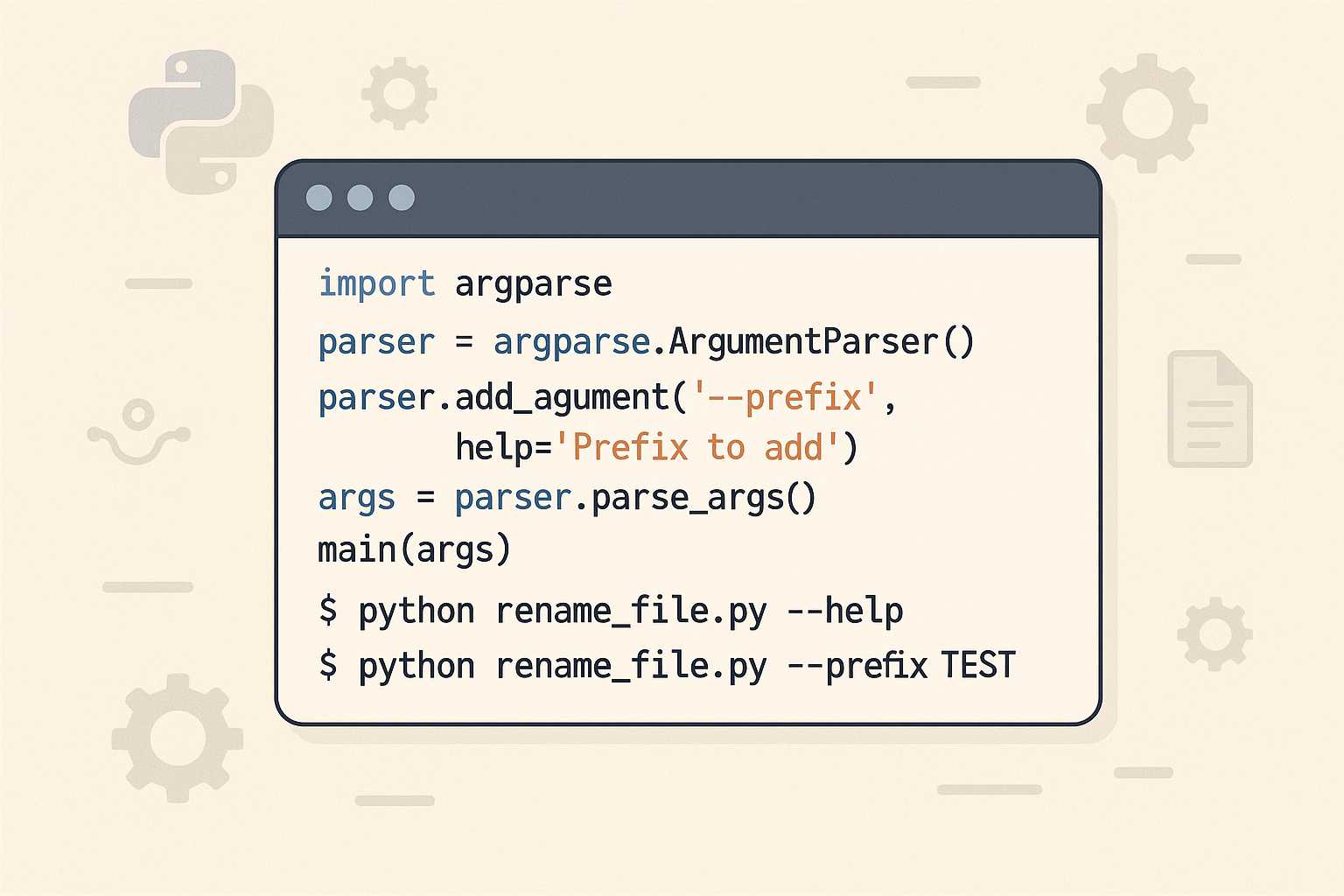If you’ve ever found yourself running repetitive tasks in the terminal or wanted more control over how you launch Python scripts, it’s time to meet a powerful ally: the argparse module. This standard library tool unlocks the ability to build rich, user-friendly command-line interfaces (CLIs) for your Python projects—no external dependencies required!
Why argparse?
While a basic script can get by with input() and hardcoded values, real-world automation and tooling quickly outgrow these limitations. With argparse, your scripts become:
- Self-documenting: Built-in help messages guide users.
- Flexible: Handle positional and optional arguments, types, choices, and more.
- Robust: Automatic parsing and validation prevent common input mistakes.
Building a Simple CLI with argparse
Let’s walk through creating a basic file renamer script:
import argparse
from pathlib import Path
def rename_file(src, dest):
src_path = Path(src)
dest_path = Path(dest)
if src_path.exists():
src_path.rename(dest_path)
print(f"Renamed {src} to {dest}")
else:
print(f"Source file {src} not found.")
if __name__ == "__main__":
parser = argparse.ArgumentParser(description="Rename a file.")
parser.add_argument("source", help="Path to the source file")
parser.add_argument("destination", help="New file name or destination path")
args = parser.parse_args()
rename_file(args.source, args.destination)
Try running this in your terminal:
python rename_file.py data.txt old_data.txt
Need guidance? Just use -h or --help—argparse handles it:
python rename_file.py --help
Taking It Further: Add Options and Validation
You can easily add optional arguments for greater flexibility:
parser.add_argument("-f", "--force", action="store_true", help="Overwrite destination if exists.")
You can then check args.force to control behavior.
Best Practices
- Always provide clear descriptions and help messages.
- Group related arguments with subparsers for multi-command CLIs (like Git).
- Validate inputs early—fail gracefully with helpful errors.
Conclusion
It’s never been easier to give your Python scripts a professional CLI polish. Whether you’re writing admin tools, data-processing pipelines, or quick utilities for your team, argparse is the key to making your code more usable and maintainable.
Happy scripting!
— Pythia


Leave a Reply